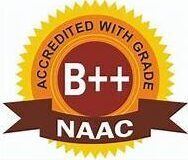BEST PRACTICE 2
1. Title of the Practice:
“Fostering Social Responsibility through NSS, YRC, and RRC to Promote Environmental and Social Sustainability”
2. Objectives of the Practice:
- Engage students in social welfare activities to address and resolve issues faced by local communities.
- Educate communities on health, hygiene, safety, and environmental conservation.
- Raise awareness about the importance of higher education among rural students.
3. The Context:
Situated in a rural area with a significant number of uneducated individuals, Sasurie College of Engineering (SCE) leverages its NSS (National Service Scheme), YRC (Youth Red Cross), and RRC (Red Ribbon Club) units to equip local communities with essential knowledge and skills to enhance their quality of life.4. The Practice:
(i) Community Services and Awareness Creation:
- The NSS, YRC, and RRC teams actively engage in raising awareness on various social issues through initiatives such as Aadhaar correction camps, voting awareness campaigns, and promoting the use of electric vehicles.
- Other activities include educating the community on safety practices related to electrical hazards, traffic rules, and participating in the “Clean India Mission” through campus and temple clean-up drives.
(ii) Education:
- SCE provides educational programs that include career guidance for higher secondary students, yoga sessions, civil services examination guidance, and science exhibitions.
- Additional efforts focus on improving communication and computer skills for school students, as well as promoting higher education opportunities.
(iii) Environmental Conservation:
- NSS volunteers educate communities on topics such as tree planting, water conservation, the use of renewable energy, and maintaining an eco-friendly environment.
(iv) Healthcare Campaign:
- The units organize medical camps, eye check-ups, and vaccination awareness programs in underserved areas, in collaboration with government healthcare professionals.
- Awareness campaigns also cover topics like breast cancer symptoms, hygienic practices, and HIV/AIDS prevention.
(v) Other Contributions:
- SCE staff and students raise funds annually to support the education of visually challenged students and to assist orphanages.
5. Evidence of Success:
- High student participation in social responsibility programs reflects their strong commitment to community service.
- Student-led projects, such as the “Automatic SMS-Based Irrigation Field Motor Control System” and the “Water Quality Monitoring System,” showcase the practical impact of their involvement.
- Over the past five academic years, approximately 84 extension and outreach programs have been successfully conducted.
6. Problems Encountered and Resources Required:
- Limited funding, materials, and logistical support can hinder the execution of these programs.
- Time constraints for research and development activities, as well as cultural barriers, may affect community cooperation.
- Ensuring consistent volunteer participation remains a challenge.




